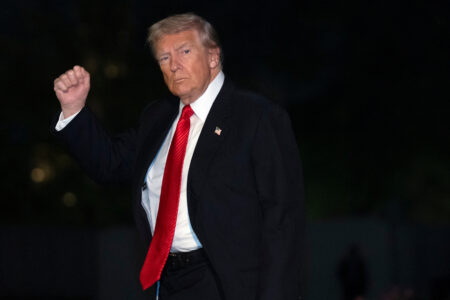West Virginia Senate Judiciary Committee forwards Morrisey’s DEI ban

State Sen. Patricia Rucker argued Thursday that DEI programs make it harder for marginalized communities to move forward. (Photo courtesy of WV Legislative Photography)
CHARLESTON — Gov. Patrick Morrisey’s bill to ban concepts in state government and academia connected to diversity, equity and inclusion received the approval of the state Senate Judiciary Committee Thursday. The Senate Judiciary Committee recommended an amended committee substitute for Senate Bill 474, ending diversity, equity, and inclusion (DEI) programs, for passage Thursday evening, though a request was made to waive the second committee reference to the Senate Finance Committee. SB 474 seeks to eliminate DEI programs, training, activities, offices, and officers from West Virginia’s executive branch, primary and secondary schools, and higher education institutions. The goal of the bill is to prohibit state entities from establishing DEI offices, hiring DEI personnel, requiring diversity statements, giving preferential treatment based on DEI, and mandating DEI training. The bill defines DEI as actions that influence hiring practices based on race, color, sex, ethnicity, or national origin, except through color-blind and sex-neutral processes; or promote special benefits based on these characteristics. SB 474 would prohibit instruction that “one race, ethnic group, or sex is morally or intellectually superior to another race, ethnic group, or sex for any inherent or innate reason.” It also prohibits instruction that “academic achievement, meritocracy, or traits such as a hard work ethic are racist or sexist…” The bill does allow discussion of DEI concepts in theory as part of academic courses, and allows discussion, examination, and debate on the impact of race, ethnicity, or sex on historical and current events. It also exempts offices/positions focused solely on legal compliance, such as those complying with federal Title IX. The bill protects county board and public charter school employees from being forced to use a student’s preferred pronoun if the pronoun is inconsistent with the student’s biological sex, protecting the employee from civil liability. The bill, introduced on behalf of Morrisey, is based in part of an executive order he signed on his second day in office in January prohibiting the use of DEI by state departments and agencies, as well as prohibiting the use of state taxpayer dollars for DEI programs. That executive order defined DEI as “policies or practices that grant preferential treatment to or discriminate against a person based on that individual’s race, sex, ethnicity, or national origin.” The executive order stated that the state and U.S. constitutions already provide protections under the law to treat everyone as equals. SB 474 also combined past efforts by the Republican legislative supermajority, such as last year’s Senate Bill 870, the Restoring Sanity Act, that sought to prohibit the instruction of certain concepts involving race and gender identity in Kindergarten-12th grade education and higher education; and Senate Bill 498, the Anti-Racism Act, to limit the instruction of certain topics, such as concepts connected to Critical Race Theory (CRT). “I’ve been trying for years to get something passed in the State of West Virginia to stop this,” said state Sen. Patricia Rucker, R-Jefferson. “As a person that is a minority in more ways than one, I have to tell you that I have found it offensive that there’s this perception that we need extra help and that we cannot achieve our dreams, that we cannot fulfill the things that we want to do without some sort of a hand up or special treatment.” As a woman and immigrant from Venezuela, Rucker said she has always been concerned with DEI programs. “It’s always been something that has bothered me,” she said. “I am so grateful for the many opportunities that this country gives to folks like me who came here not able to speak a word and had many, many challenges to overcome.” State Sen. Joey Garcia, D-Marion, opposed the bill. He said he has heard from his constituents, as well as the business and higher education community who believe that DEI is not a negative concept. “You can disagree or agree on the contents of the bill and what it does. But what you can’t disagree with is the number of businesses and others who’ve reached out and said, you know, we think diversity, equity, inclusion is a good thing,” Garcia said. “The idea of trying to help give these opportunities in a broader level and including more people, that makes West Virginia a better place to live, and it attracts business. And I think this bill sends the wrong messages to a number of businesses that may be looking at coming here and may not come here.” Steven Allen Adams can be reached at sadams@newsandsentinel.com





